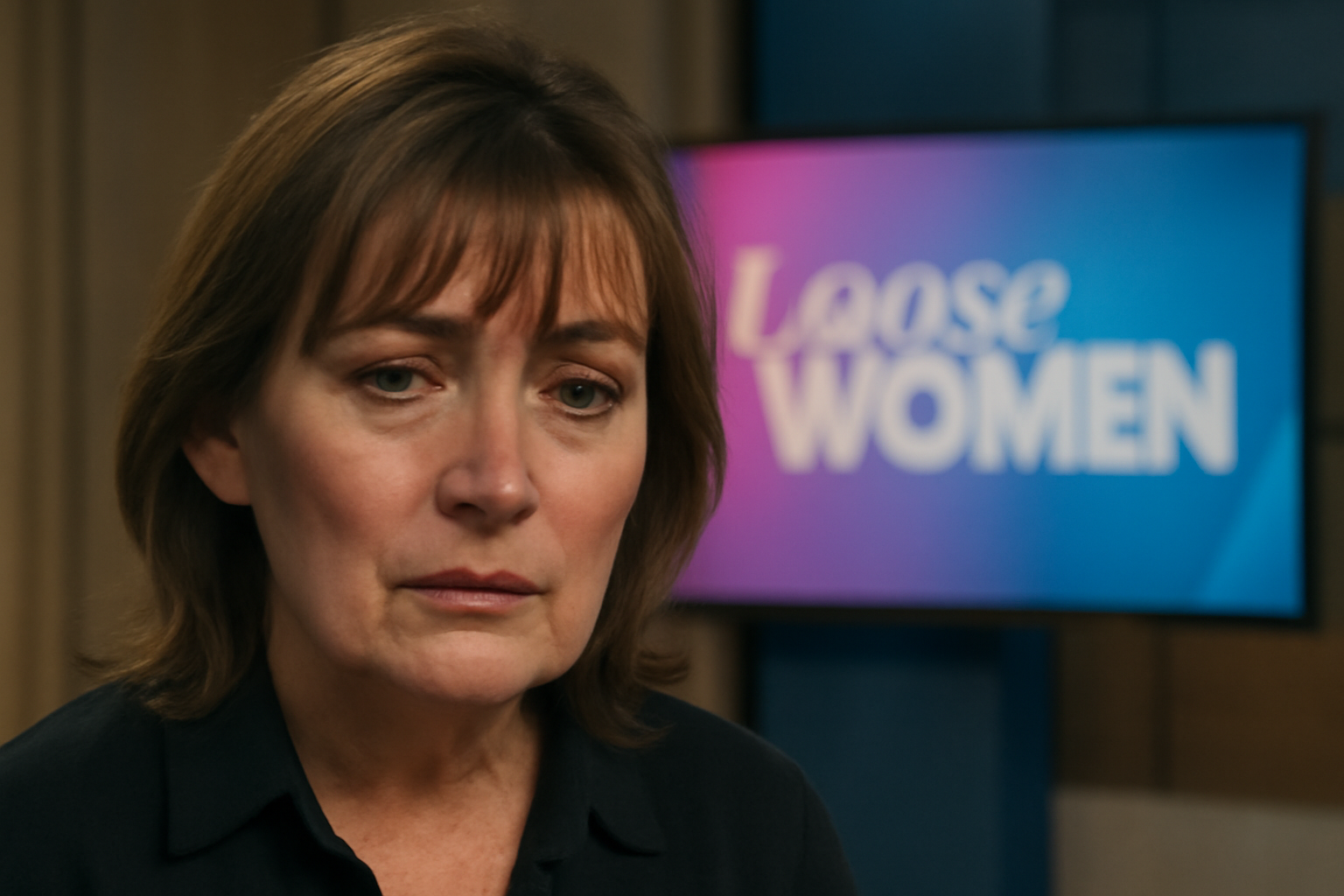ITV’s Dramatic Daytime Shake-Up: Lorraine and Loose Women Slashed Amid Cost-Cutting Crisis
In a move that has sent shockwaves through the television industry and its loyal viewers, ITV announced on May 20, 2025, a sweeping overhaul of its daytime programming, slashing Lorraine and Loose Women from the airwaves for nearly half the year and reducing Lorraine’s runtime to a mere 30 minutes. The changes, effective from January 2026, come as part of a cost-cutting strategy that will see Good Morning Britain extended and more than 220 jobs cut across ITV’s daytime output. The decision has sparked concern among fans, fears for the future of veteran presenter Lorraine Kelly, and debates about the viability of daytime TV in an era of shrinking budgets and shifting viewer habits. Here, we unpack the details of this seismic shift, its impact on beloved shows, and the broader implications for ITV’s daytime legacy.

A Radical Redesign of ITV’s Daytime Lineup
The announcement, delivered during an emergency staff meeting led by ITV Daytime boss Emma Gormley, marks one of the most significant changes to the network’s daytime roster in its history. Starting in January 2026, Lorraine, hosted by the iconic Scottish presenter Lorraine Kelly, will air for only 30 weeks of the year, down from its current near-year-round schedule. Its runtime will be halved, moving from a 9:00–10:00 am slot to a condensed 9:30–10:00 am window. During the 22 weeks when Lorraine is off air, Good Morning Britain (GMB) will extend its broadcast from 6:00 am to 10:00 am, absorbing the vacated slot.
Loose Women, the popular panel show featuring presenters like Coleen Nolan and Kaye Adams, faces a similar fate. It will also air for just 30 weeks annually, adopting a seasonal schedule reminiscent of its pre-2016 format, but retaining its 12:30–1:30 pm slot. In contrast, This Morning, hosted by Cat Deeley, Ben Shephard, and Alison Hammond, remains untouched, continuing its 10:00 am–12:30 pm weekday run throughout the year. GMB, currently hosted by Susanna Reid and Ed Balls, will see a 30-minute extension to 9:30 am year-round, with production shifting from ITV Studios to ITN, the organization behind ITV News.
The changes reflect ITV’s response to financial pressures, including a downturn in advertising revenue and rising production costs. Kevin Lygo, ITV’s Managing Director of Media and Entertainment, emphasized that the cuts are designed to “generate savings” for reinvestment in high-impact genres like drama, sports, and reality TV, citing successes like Mr Bates vs The Post Office and upcoming World Cup coverage. However, the decision to prioritize these areas over daytime staples has raised questions about the genre’s future.
Lorraine Kelly’s Show Takes the Hardest Hit
Lorraine, which Kelly has fronted since 2010, bears the brunt of the cuts. The show, known for its mix of celebrity interviews, lifestyle segments, and Kelly’s warm, relatable style, has been a cornerstone of ITV’s morning lineup. The reduction to a 30-minute format and a 30-week schedule has sparked fears among staff that the show’s quality could suffer. An insider noted that Kelly, who celebrated 40 years in broadcasting in 2024 and received a special BAFTA, is “devastated” by the changes, particularly the projected loss of nearly half of ITV Daytime’s 450-strong workforce. With 220 jobs at risk across GMB, Lorraine, This Morning, and Loose Women, the mood among staff is one of “collective devastation.”
Kelly’s expanded role—presenting five days a week instead of four during the 30-week run—means her Friday stand-in presenters, Ranvir Singh and Christine Lampard, are no longer needed for Lorraine. However, ITV has assured that both remain part of the “ITV Daytime family,” potentially contributing to other programs. Kelly, who recently returned to work after keyhole surgery in May 2025, has yet to publicly address the changes, leaving fans anxious about her response. Some staff reportedly fear that Kelly, a “perfectionist” whose show recently boasted its best viewership in four years, might consider leaving if the production quality declines.
Loose Women and the Seasonal Shift
Loose Women, a lunchtime staple since 1999, will also adopt a seasonal model, airing for 30 weeks in its usual 12:30–1:30 pm slot. The show, which thrives on its lively panel discussions and topical debates, has faced periodic disruptions in recent months, including cancellations for events like the Cheltenham Festival and the Grand National. The move to a two-week-on, two-week-off schedule aligns with the seasonal patterns of its lead presenters, but it has disappointed fans who value its consistency. Social media reactions on X reflect frustration, with one user lamenting, “Lorraine & Loose Women getting axed for half a year is a travesty!”
The decision to maintain This Morning’s full schedule has drawn comparisons to its resilience amid past controversies, such as the 2023 exits of Holly Willoughby and Phillip Schofield. Fans of Lorraine and Loose Women have questioned why these shows were targeted, with some speculating that This Morning’s broader appeal and higher viewership—often exceeding 700,000 compared to Lorraine’s fluctuating figures—secured its position.
Behind the Cuts: Financial Pressures and Strategic Shifts
ITV’s overhaul is driven by a need to address financial challenges facing the UK television industry. A decline in advertising revenue, coupled with increased competition from streaming platforms, has forced broadcasters to rethink their budgets. ITV’s chief executive, Dame Carolyn McCall, recently highlighted a £30 million cost-cutting drive for 2025, with the daytime changes expected to free up resources for drama, sports, and reality programming. The success of Mr Bates vs The Post Office, which drew millions of viewers, has fueled ITV’s ambition to invest in similar high-impact projects.
Production changes are also significant. GMB’s move to ITN, which already produces ITV News, aims to consolidate news operations and leverage existing journalistic resources. Lorraine, This Morning, and Loose Women will relocate from Television Centre to a new central London studio, with ITV Studios proposing to merge their production teams into a single unit to share resources. While this aims to streamline operations, it has raised concerns about job losses and the potential loss of each show’s distinct editorial identity.
Fan Outrage and Industry Concerns
The announcement has ignited a firestorm of reactions from viewers, particularly on X, where fans expressed dismay over the cuts. One post described the changes as “KARMA” for Lorraine’s critical coverage of certain public figures, though most focused on the loss of beloved programming. Another user mourned the “scaling-back of daytime shows,” arguing that Lorraine’s 30-minute format leaves “not much time” for its signature content. The sentiment underscores the deep connection viewers feel to these shows, which have been part of ITV’s schedule for over 40 years.
Industry insiders are equally concerned. The projected loss of 220 jobs—nearly half of ITV Daytime’s staff—has drawn comparisons to earlier cuts, such as ITV’s February 2025 decision to reduce Coronation Street and Emmerdale episodes. The move to a “soaps power hour” of 30-minute episodes reflects a similar strategy of cost-saving while preserving viewer engagement. However, the daytime cuts are seen as more drastic, with fears that reduced airtime and resources could erode the shows’ quality and audience loyalty.
Lorraine Kelly’s Future in Question
Speculation about Lorraine Kelly’s next steps has intensified. A PR expert suggested that the changes, coming as a “great shock,” might prompt Kelly to explore other opportunities, leveraging her 40-year career and strong personal brand. Her recent absence for surgery and her reputation for professionalism have only heightened fans’ admiration, but the drastic reduction of her show’s scope has led some to wonder if she’ll stay with ITV. “Lorraine and her team are perfectionists—it’s why the show is loved by so many,” an insider noted, raising doubts about her willingness to compromise on quality.
Kelly’s silence on the matter contrasts with her usual openness, such as when she addressed her health earlier in May 2025. Fans hope she’ll remain a fixture, but the uncertainty surrounding her show’s future has fueled discussions about potential moves to other networks or projects, such as her occasional work with BBC or Channel 4.
What Lies Ahead for ITV Daytime
As ITV navigates this transition, the network faces the challenge of balancing cost-cutting with maintaining its daytime legacy. This Morning’s stability, bolstered by presenters like Alison Hammond, whose recent hay fever-related absence drew significant support, suggests that ITV is prioritizing shows with broad appeal. GMB’s extension and ITN production shift aim to strengthen its competitive edge against BBC Breakfast, which consistently outpaces it in ratings. However, the cuts to Lorraine and Loose Women risk alienating loyal viewers, particularly older audiences who rely on daytime TV for companionship and entertainment.
The changes also reflect broader trends in the TV industry, where streaming giants and digital platforms are reshaping viewer habits. ITV’s investment in ITVX and high-profile dramas indicates a pivot toward content that can compete globally, but the cost may be the erosion of traditional daytime programming. For now, fans are left grappling with a future where Lorraine and Loose Women are part-time fixtures, and the industry watches closely to see if ITV’s gamble pays off.
A Turning Point for Daytime TV
ITV’s decision to axe Lorraine and Loose Women for half the year is a bold and controversial move, reflecting the harsh realities of a changing media landscape. As Lorraine Kelly and her team face an uncertain future, and Loose Women adapts to a seasonal rhythm, viewers are rallying behind their favorite shows, hoping for a reversal or a new path forward. The cuts, while strategic, underscore the fragility of daytime TV in an era of budget constraints and digital disruption. Whether ITV can preserve the heart of its daytime lineup while chasing new ambitions remains to be seen, but for now, the shake-up has left an indelible mark on the industry and its devoted audience.





